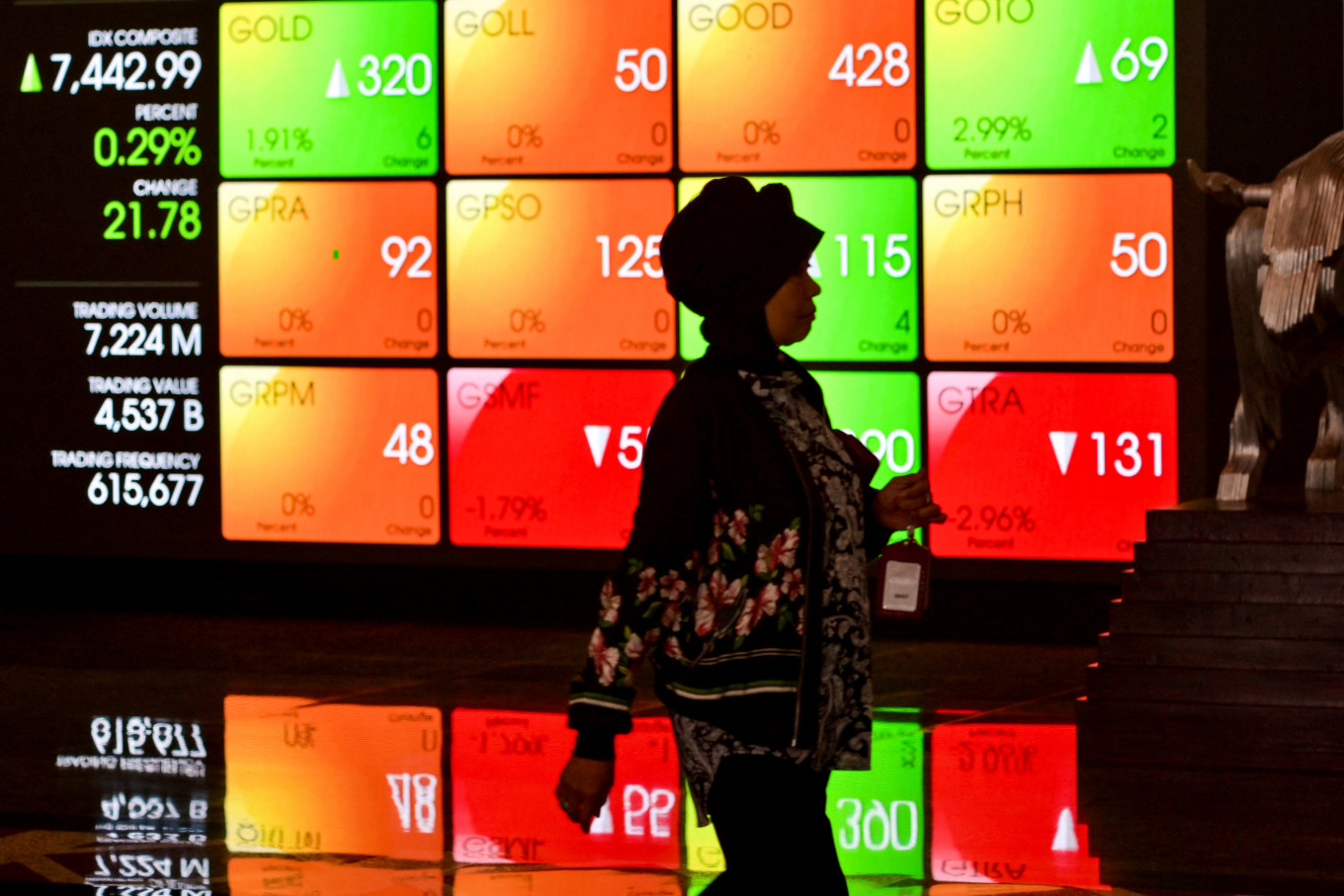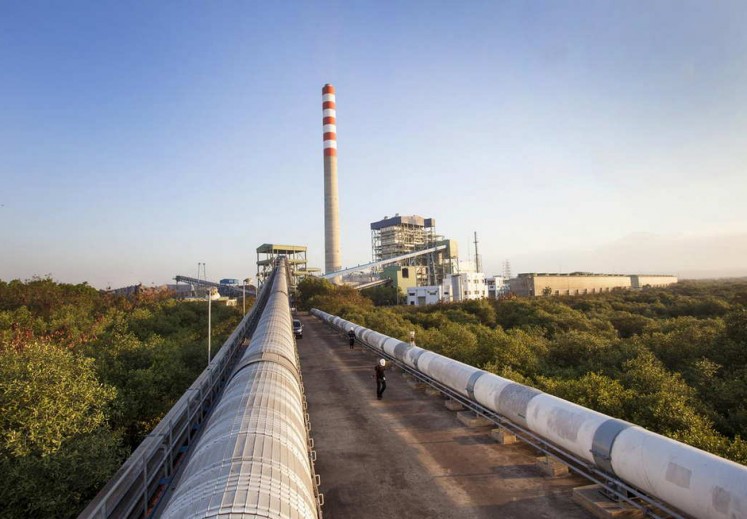Popular Reads
Top Results
Can't find what you're looking for?
View all search resultsPopular Reads
Top Results
Can't find what you're looking for?
View all search resultsIDX Composite falls 1.42% as concerns escalate over weakened rupiah
The IDX Composite closed this week’s trading by continuing its fall with a 1.42-percent drop on Friday, driven by concerns over the rupiah dropping below Rp 16,400 against the greenback.
Change text size
Gift Premium Articles
to Anyone
T
he Indonesia Stock Exchange (IDX) Composite index fell by 1.42 percent, or 96.73 points, to close at 6,734.83 in the week's last trading day on Friday. The Composite index recorded a 2.36 percent decline over the week.
All sectoral indices fell along with the Composite index.
The technology sector plunged by 2.23 percent. The infrastructure sector fell by 2.03 percent while the energy sector declined by 1.93 percent. The basic materials sector was cut by 1.74 percent and the financial sector dropped by 1.63 percent.
The transportation and logistics sector was down by 1.31 percent. The non-primary consumer goods sector fell by 1.21 percent while the industrial sector weakened by 1.08 percent. The primary consumer goods sector increased by 0.69 percent and property and real estate sector grew 0.41 percent. The health sector weakened by 0.26 percent.
Only three stocks in the LQ45 index gained on Friday: PT Unilever Indonesia (UNVR) rose by 4.58 percent, PT Amman Mineral Internasional (AMMN) was up by 2.33 percent and PT Ace Hardware Indonesia (ACES) gained 0.60 percent.
The top losers in the LQ45 index were PT Semen Indonesia (SMGR) with a decline of 6.01 percent, followed by PT Saratoga Investama Sedaya (SRTG) with 5.59 percent and PT Pertamina Geothermal Energy (PGEO) with 5.36 percent.
The Composite index fell sharply because of concerns over the weakening rupiah, which dropped below Rp 16,400 per United States dollar.
Before market closing, the rupiah depreciated by 0.97 percent, losing over 140 points to Rp 16,423 against the greenback, making it the weakest currency in Asia for the day.
Investors grew increasingly worried about Indonesia's fiscal outlook under the newly elected government, which reportedly plans to raise the debt ratio to 50 percent to fund various programs.
In the bond market, all yield curves rose, indicating upward pressure on prices. The 10-year yield reached 7.145 percent, the five-year yield climbed to 7.090 percent and the two-year yield increased to 6.722 percent.
President-elect Prabowo Subianto plans to increase the debt ratio by two percentage points each year over the next five years. This gradual strategy aims to give his economic team more flexibility in managing challenges rather than accumulating debt quickly.
This strategy could raise Indonesia's debt to nearly 50 percent of GDP by the end of Prabowo’s five-year term, up from approximately 39 percent this year, potentially reaching levels not seen since 2004.











